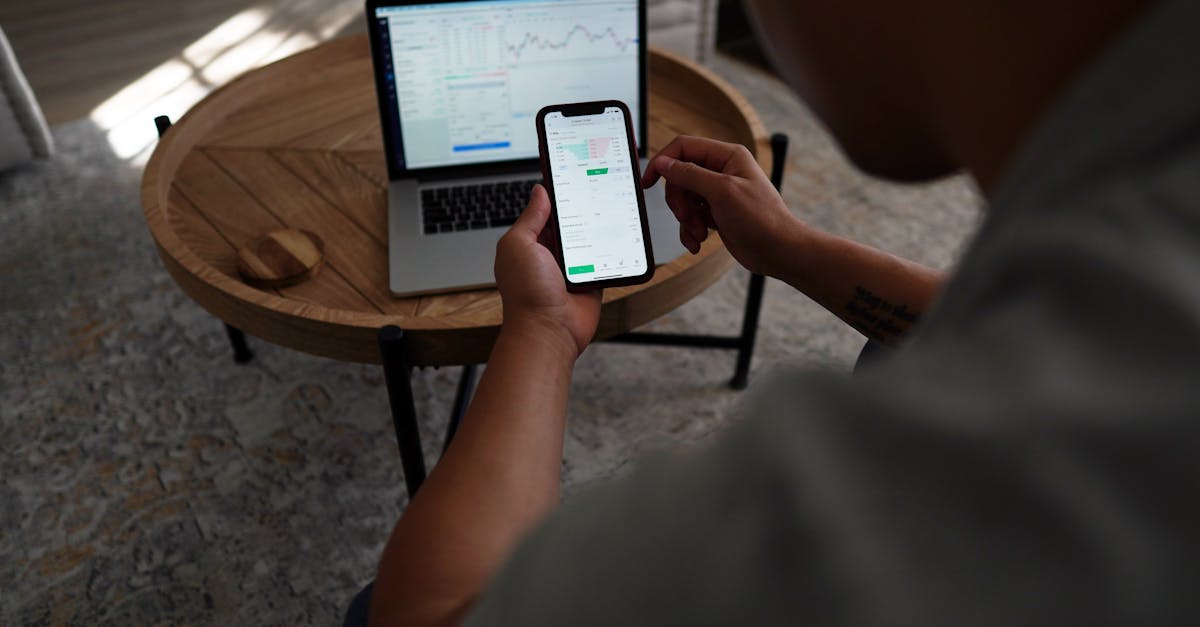
Challenges Faced by Funded Traders
Funded traders often encounter a range of challenges that can impact their overall performance and profitability. One significant issue is the pressure of adhering to strict evaluation criteria set by proprietary trading firms. These evaluations frequently require traders to demonstrate their ability to manage risk effectively while achieving specific profit targets. Failure to meet these expectations can result in disqualification from the funding program or the loss of the trading account, which can be daunting for new traders trying to navigate the complexities of the financial markets.
Additionally, the cost associated with funded trading accounts can be a considerable obstacle. Many firms impose fees that can add up over time, creating concerns over hidden costs that might not be immediately apparent. Traders need to be vigilant about understanding the fee structures of their chosen platforms to avoid unexpected expenses that can erode profits. With the emphasis on leveraging financial instruments such as forex, stocks, or commodities, proper risk management strategies become essential to ensuring longevity and success in this competitive arena.
Overcoming Common Obstacles
Funded traders often grapple with various obstacles that can impede their success. For many, the challenge lies in understanding the terms of service and navigating the specifics of their funding agreement. A clear awareness of the risks involved in trading securities is essential, particularly as financial risk can escalate quickly. Many traders find it beneficial to engage in thorough market analysis, enabling them to make informed decisions that align with their trading strategies. Building a budget that accounts for both subscription fees and potential losses can create a cushion, allowing traders to manage their risk capital more effectively.
Developing a solid educational foundation is vital for overcoming hurdles in funded trading accounts. Resources such as mentorship programs and community support can enhance skills and provide valuable insights into the forex market variations. Many traders benefit from diversifying their approaches, incorporating different asset classes and strategies to mitigate risk. In jurisdictions with competitive trading environments, utilising advanced trading platforms like MetaTrader can also aid in streamlining operations, from day trading to scalping. Knowing which features to prioritise based on personal trading goals can significantly affect a trader's profitability and overall experience.
Risk Management in Funded Trading
Effective risk management is crucial for traders using funded accounts, as it can significantly impact their long-term success. Awareness of individual risk tolerance is fundamental. Traders should define acceptable loss thresholds for each trade, ensuring that no single trade compromises overall capital. Utilizing strategies like stop-loss orders allows for automatic exits when a trade moves unfavourably. Additionally, deploying techniques such as position sizing can help control overall exposure, protecting the trader from excessive losses.
A disciplined approach to risk management fosters an environment conducive to learning and growth. Traders are encouraged to regularly evaluate their performance, reflecting on both successful and unsuccessful trades. This continuous analysis supports the adjustment of strategies and fosters a proactive mindset. By leveraging risk management tools available through trading platforms, such as Pepperstone or others with market access in locations like Saint Lucia or the Czech Republic, traders can mitigate risks associated with volatility in markets like commodities and cryptocurrencies.
Strategies to Protect Your Capital
Protecting capital in the dynamic landscape of funded trading is crucial for long-term success. Day traders and futures traders alike need to implement robust strategies that incorporate risk management principles. Diversification across various asset classes, such as CFDs, ETFs, and cryptocurrencies, helps mitigate potential losses. By spreading risk across different sectors and financial instruments, traders can reduce their exposure to market volatility. Using technical analysis also allows traders to make informed decisions based on price movements and trends, further enhancing their ability to shield their capital from unforeseen market shifts.
Additionally, adopting a disciplined trading system is vital. Risk-averse traders should establish clear stop-loss orders to limit potential losses on trades. Incorporating a loyalty program can incentivise consistent trading behaviour and encourage risk management. Furthermore, utilising analytic tools available on leading trading platforms, like MetaTrader, can assist traders in monitoring their trades and making timely adjustments. Lastly, collaborating with a financial advisor can provide valuable insights into market conditions and personal risk tolerance, enabling traders to navigate the complex forex and futures markets more effectively.
The Role of Trading Platforms
Trading platforms serve as the critical interface for funded traders, providing the necessary tools and features for navigating the financial markets effectively. A robust platform offers access to a variety of asset classes, including stocks, commodities, and cryptocurrencies like Bitcoin. The user interface should be intuitive, allowing traders to execute orders swiftly while also offering advanced analytics for market evaluation. Features such as charting tools, simulation capabilities, and customisable dashboards improve the trading experience and enhance decision-making processes.
Security and legitimacy are paramount when selecting a trading platform. Traders must ensure that the platform adheres to regulatory standards and possesses the appropriate licenses to operate within various jurisdictions. Commission structures, margin requirements, and withdrawal processes should be transparent, allowing for careful evaluation of the overall trading costs. Additionally, platforms that incorporate educational resources or online courses can significantly benefit new traders by helping them understand trading strategies and risk management techniques.
Features to Look for in a Trading Environment
When evaluating a trading platform, several features become vital in creating an optimal trading environment. User-friendly interfaces simplify the learning curve for both novice and experienced traders, ensuring swift navigation through market analysis tools. Access to robust educational resources, such as webinars and tutorials, can significantly enhance traders' understanding of volatility and market behaviours. Scalpers and high-frequency traders, in particular, benefit from platforms that allow for quick decision-making, enabling them to capitalise on fleeting price movements.
Additionally, transparency in pricing is critical. Traders should seek platforms that disclose potential hidden fees and provide clear information on the cost of transactions. The reliability of order execution can influence trading outcomes significantly, making it imperative to choose a platform that demonstrates consistent performance, especially during periods of market turbulence, such as those seen in the Nasdaq 100 or E-mini S&P. Moreover, platforms that offer customer feedback loops and responsive support contribute to traders' overall experience, helping them meet their goals and navigate challenges effectively.
FAQS
What is a funded trading account?
A funded trading account is an account where a trader is provided with capital by a company or funding provider to trade in financial markets. The trader can keep a portion of the profits generated from their trades while adhering to specific guidelines set by the funding provider.
What are some common challenges faced by funded traders?
Funded traders often face challenges such as emotional stress, adhering to trading rules, managing risk effectively, and dealing with the pressure of trading someone else's capital. These factors can impact decision-making and trading performance.
How can I overcome obstacles in funded trading?
Overcoming obstacles in funded trading can involve establishing a solid trading plan, practicing good emotional discipline, regularly reviewing and adjusting strategies, and seeking support from trading communities or mentors who understand the funded trading environment.
What are effective risk management strategies in funded trading?
Effective risk management strategies include setting appropriate stop-loss orders, diversifying trades, limiting the size of individual trades relative to total capital, and consistently evaluating performance to adjust risk exposure based on success rates.
What features should I look for in a trading platform for funded trading?
When selecting a trading platform for funded trading, look for features such as user-friendly interface, reliable execution speeds, comprehensive charting tools, risk management features (like stop-loss and take-profit options), and strong customer support to assist with any issues.




